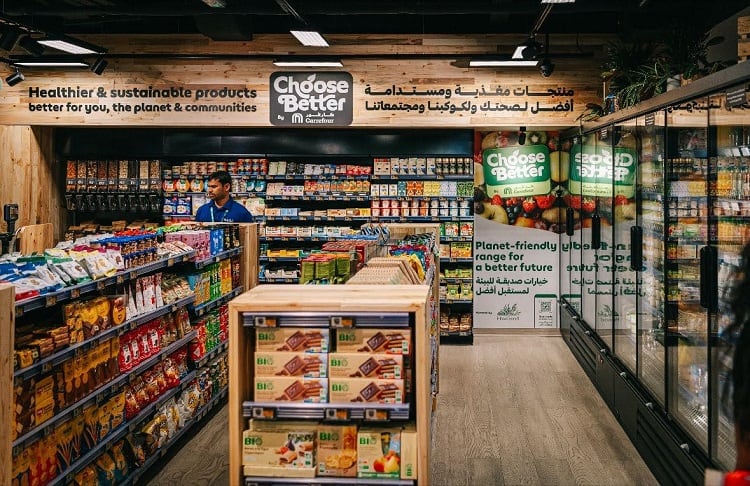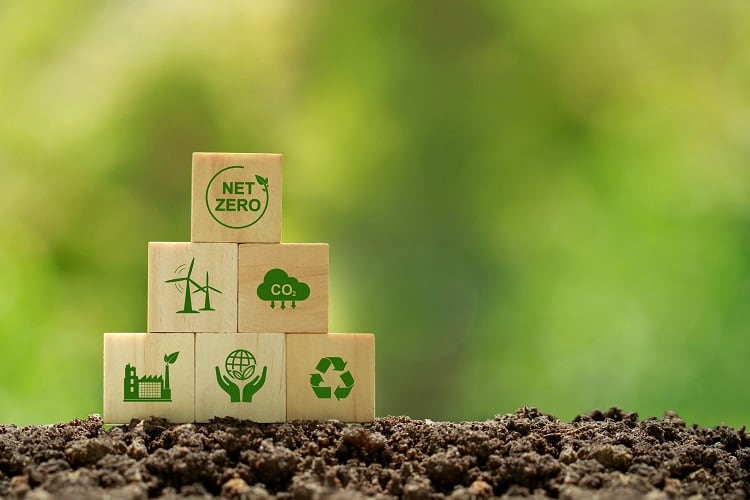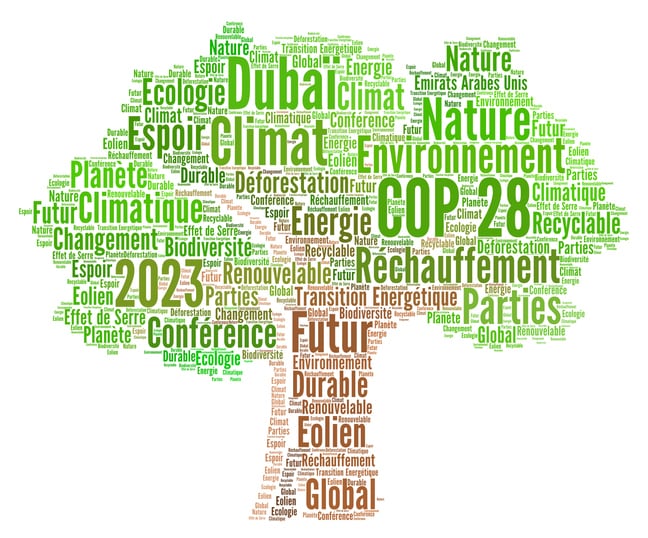The 28th edition of the United Nations Climate Change Conference is about it open its doors. In just two days’ time, an estimated 70,000 delegates will gather at the Expo City, Dubai, to discuss the climate crisis.
The timing is critical. According to a recent report from the World Resources Institute, global efforts to limit warming to 1.5˚C are failing. Except for electric passenger car sales, progress is lagging ‘significantly’ behind the pace and scale necessary to meet the Paris Agreement.
Addressing agri-food system emissions needs to be part of the solution, with close to one-third (31%) of total anthropogenic (originating from human activity) greenhouse gas (GHG) emissions – the equivalent of 16.5bn tonnes – attributed to food and agriculture.
At the consumer level, environmental labelling can play an important role in bringing transparency to a product’s sustainability credentials. At the same time, such labels can serve as something of a carrot for manufacturers and retailers, who may be incentivised to reduce CO2 emissions and better cater to carbon-conscious shoppers.
Climate impact labels company HowGood, which gives sustainability ratings to food and drink products in retail, wants to help inform consumers when making purchase decisions. And now the start-up is tying up with retailer Carrefour in Dubai to roll out climate impact labels for 2,500 food items across five stores, including at COP28.
Measuring the sustainability of food products
HowGood claims to have developed the world’s largest ingredient and product sustainability database. Leveraging its sustainability insights on over 33,000 food ingredients, the platform offers a range of data to help consumers make more informed decisions.
Specifically, HowGood provides three labels. Firstly, it displays the product carbon footprint, which is the result of measuring the GHG emissions of a product, from cradle-to-shelf.
Secondly, HowGood offers a sustainability rating. “Products that receive HowGood’s ‘Best’ rating have a social and environment impact better than 95% of all products assessed by HowGood,” a HowGood's chief innovation officer Ethan Soloviev told FoodNavigator. “Those rated ‘Great’ are better than 85%, and those rated ‘Good’ are better than 70%.”
HowGood is solely focused on food industry research, so any non-food product in stores will not display a rating.
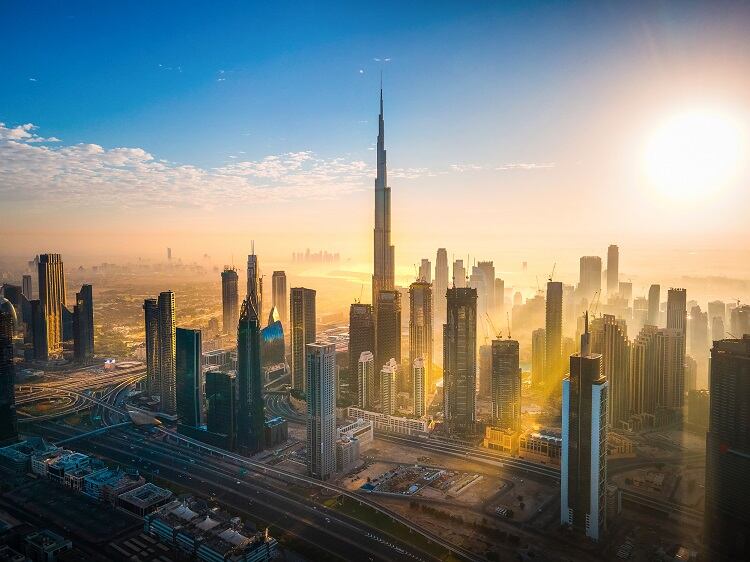
The start-up also offers transparency by highlighting product sustainability attributes. For example, if a product uses less water than average in their production they may be labelled ‘water smart’, the same goes for lower GHG emissions than average (‘climate friendly’), a simple formula with seven or fewer ingredients (‘clean label’), made with ingredients that are not dependent on commercial or industrial processing (‘minimally processed’), and/or respect workers’ rights and dignity (‘fair labour’).
How does climate labelling change purchase behaviour?
HowGood says it labels have been proven to help guide shoppers towards more sustainable offerings. A recent tie-up with SES-imagotag in London saw the use of
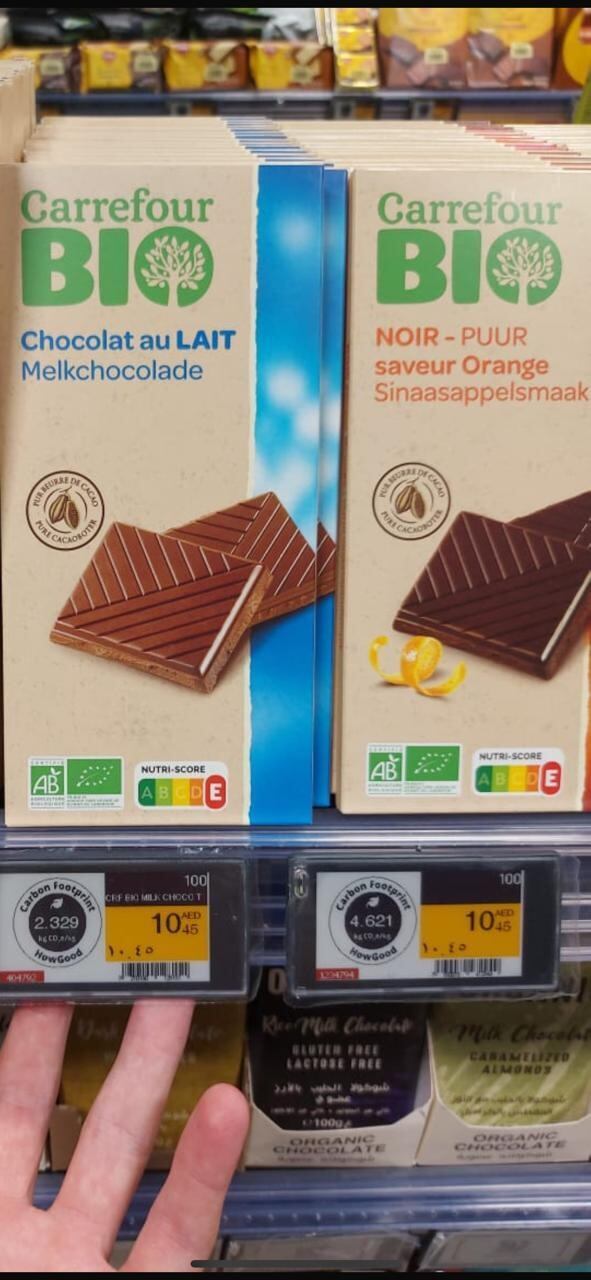
HowGood attribute to product sales (for those that achieved a rating) by 25.8% on average. The use of the ‘fair labour’ attribute specifically saw a lift of 45.1%.
“We can and do expect the labels will help impact consumer purchase behaviour at COP28,” Soloviev told this publication.
In Dubai, HowGood is again partnering with SES-imagotag to provide digital shelf tags. In collaboration with Majid Al Futtaim – which operates Carrefour in the UAE – HowGood’s climate impact labels will be displayed in Carrefour stores at Mall of the Emirates, City Centre Deira, City Centre Mirdif, Dubai International Airport’s Terminal 3, and its store at COP28.
“There will be three types of labels: HowGood’s comprehensive product sustainability ratings, which consider eight metrics across environmental and social impact; HowGood attributes, which assess GHG emissions, water usage, labour risk, and others; and carbon footprint,” Soloviev explained.
Additionally, the carbon footprint of the shopper’s purchased items will be printed on the bottom of every receipt at the COP28 store location.
“Overall, the labels will bring comprehensive environmental and social impact data such a greenhouse gas impact, water impact, labour conditions, and more to the shelf level.”
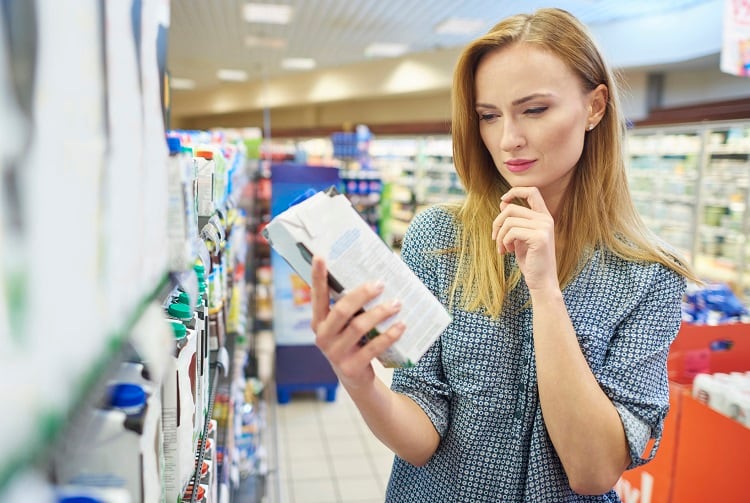
The move reflects heightened focus on food at this year’s Climate Change Conference, compared to previous years. While last year at COP27 a pavilion was dedicated to food for the first time, in Dubai food and food systems is expected to be at the centre of discussions.


